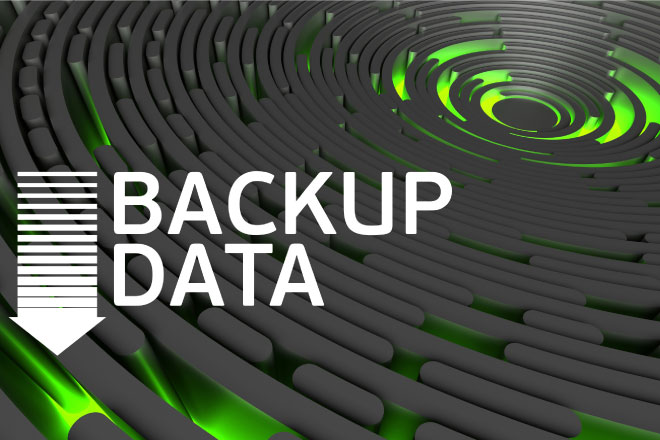No business can do without deploying standard backup software in its IT systems, as these help to prevent the loss of data. This article outlines the ten top open source solutions for backup, and explains why they are needed.
Open source backup software is designed to automate the process of backing up, making it easier for organisations and individuals to back up their files regularly. These backups are strongly recommended for computer users, as data loss can be extremely frustrating.
Most backup software can save the backup in local storage or in a portable storage device. In some cases, you can also back up registry data along with normal data. Apart from backup, you can also restore data through this software. Some of the software also offers the flexibility to back up data online.
With source code that anyone can inspect, modify or enhance, open source backup software is easily managed, and is designed to be publicly accessible and maintained by organisations with a specific mission in mind. The ten open source backup tools included in this list are full-featured, offering an expansive list of capabilities for a variety of users.
Various methods of creating backups
Full disk backup: Copying the complete source data files, including the associated settings and configurations of the whole computer system or hard drive, is called full disk backup.
Differential backup: Copying only those files that have changed since the last backup refers to the process of differential backup.
Incremental backup: Incremental backup acts as an add-on to the already existing backup. If the source disk has a change of data or new data was added to it, then incremental backup automatically adds the newly created extra data only.
Disk imaging: Disk imaging is the process of creating an archive of the source disk to a destination disk, which can be later used for making more copies of the hard drive.
Disk cloning: Disk cloning creates a clone of the source disk into another hard drive.
Mirror backup: Mirror backup is quite similar to a full backup. But unlike full backup, mirror backup doesn’t allow compression of all files together. Files need to be individually compressed if required.
Local backup: Local backup refers to a backup when the destination disk is kept close to the source disk. Mostly, the storage disk is directly connected to the source computer.
Remote backup: Sometimes, IT administrators take backups of distant computers remotely without physically accessing them. This is known as remote backup.
Cloud backup: A cloud backup uploads the source disk data to cloud servers directly. Many third party vendors provide cloud backup services.
Most of the open source backup software uses various synchronisation methods to take data backups. These popular methods of backup are: left to right (incremental), mirror A->B or vice versa, synchronise A<->B, etc. These synchronisation methods first compare data from the main source and destination folder. After that, they add, delete and modify data in one or both locations.
Best data backup advice
Golden rules: An easy-to-remember rule to keep your data safe is the 3-2-1 backup rule, which is:
- Keep at least three copies of your data
- Store two backup copies on different storage media
- Locate one of them offsite
Need for backup software: There are a number of reasons why companies need to back up their data. Some of these are:
- Companies cannot risk storing all the data on a single computer, hard drive, or server. Any mishap with one will wipe out all the valuable data. It requires hardware and backup software to create multiple storage points for the important data.
- All backup is not a simple copy and paste function to create duplicate files. Some backups require complicated backup functionalities such as creating exact duplicate copies of the OS, configurations, and system settings of one computer to another. This cannot be done without deploying backup software. Even if companies engage hardware to store data, it is not feasible to keep a backup for such a massive amount of data files.
- It is an arduous task for companies to keep the data safe and secure all by themselves. They need to use the advanced features of data backup software to make use of the expertise and compliance that organisations don’t have.
- It is not easy for large-scale companies to back up bulk data to external drives without deploying backup software.
- Companies can’t process the backup of bulk content in customised formats. Compressed data backups, backups of old and new versions, differential and incremental backups, remote backups, etc, are not possible without backup software.
Benefits of using backup software:
- Backup software acts as a protection against power failure, abrupt power cuts, etc.
- The data is disaster-proof, more secure and safe once a backup is taken with multiple layers of security provided by the backup software.
- Backup software loads data easily, which saves a lot of time. Companies are spared from wasting time in managing the data.
- Lost files or loss of old versions of important files can reduce a company’s profitability substantially. Backup software retains all the versions of a document.
10 best free and open source backup solutions
1. Areca
Areca offers an open source backup support solution through GPL (General Public License). Users can choose the files set or the directory that has to be backed up, and also select the place where data can be stored. This software provides encryption of data, compression of files and other functions. Advanced backup modes are permitted to customers through Areca — for example, backup of delta, zip archives and basic copies of source files. This is a solution for both Windows and Linux.
2. AOMEI
AOMEI is a backup standard that provides a brief knowledge on user imaging, backup files, cloning disks, syncing files and optimised scheduling. Data transfer and the migration of the OS are assessed easily using clone systems, clone disks and clone partitions. It provides various sets of backup processes including a backup system, backup files, syncing files, backup disks and backup of partitions.
3. Bareos
Bareos is the acronym for ‘Backup archiving recovery open source’. This backup software is a fork of the Bacula project. The software runs on a single computer and can back up different types of media, including tape and disk. Bareos enables IT admins to manage recovery, backup, and verification of computer data over a network of different kinds of computers, in a manner similar to Bacula.
4. Duplicati
Duplicati software is supported by Windows, MacOS and Linux, as well as a range of standard protocols, including SS, FTP, cloud services and WebDAV. It is useful if strong encryption is needed by the user. Licensed under the GPL, it gives users the ability to store encrypted, incremental, and compressed backups on cloud storage servers and remote file servers. The software offers features like filters, deletion rules and bandwidth options to run backups.
5. EaseUS Todo
This software helps the user to back up single folders, files, drivers, partitions and full systems. Users have the capability to upgrade the clone disk from a smaller HDD to a large one. This tool permits users to get their systems back to their actual state using a recovery boot system.
6. FBackup
FBackup gives the options of advanced modes and wizard modes. Backups are saved on a local drive, network drive and portable disk. This software is preferred because of its multi-language interface.
7. Iperius
Iperius is used for backups in PCs and servers. It has two types of solutions — business and advanced. This software helps to back up data in a stable and reliable manner. The software is free and does not have a licence expiry.
8. Paragon
Paragon can create a partial and full-time recovery on backup system files. It offers advanced support for recovering the ISO image.
9. Unitrends
Unitrends includes backup software such as free VMware and Hyper-V. The free version can secure 1TB of data. Its five major software editions are: (i) Free Unitrends, (ii) Standards, (iii) Essentials, (iv) Enterprises, and (v) Enterprise Plus.
10. UrBackup
UrBackup is an open source network used for Windows and Linux backups. It has a client-server architecture. It uses a combination of backup files and images to achieve quick restoration of data with safety.
Backup software is designed to save organisations from any unforeseen event that may cause them to lose valuable data. It is like essential infrastructure that is a must for the smooth running of the organisation. It is not something that companies may choose to deploy, but is a necessary tool that they should possess irrespective of the size and scale of their business.



















































































